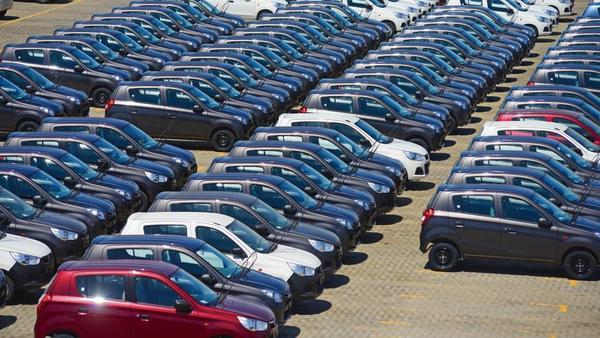New Delhi: Passenger vehicle wholesales in India increased 13.59 per cent to 2,52,998 units last month on a very low sales base of December 2019, auto industry body SIAM said Thursday.
Passenger vehicle sales in December 2019 stood at 2,22,728 units.
As per the latest data by Society of Indian Automobile Manufacturers (SIAM), two-wheeler sales also rose 7.42 per cent to 11,27,917 units, compared to 10,50,038 in December 2019.
Motorcycle sales increased 6.65 per cent to 7,44,237 units as against 6,97,819 in December 2019.
Scooter sales were also up 5.59 at 3,23,696 units from 3,06,550 units a year ago.
Commenting on the December sales, SIAM Director General Rajesh Menon said the passenger vehicle and two-wheeler segments witnessed an increase in sales last month over a very low base of December 2019.
In the October-December quarter this fiscal, passenger vehicle sales increased 14.44 per cent to 8,97,908 units from 7,84,616 units in the year-ago period.
Two-wheeler sales during the December quarter rose 13.37 per cent to 47,82,110 units as compared to 42,18,157 units in the same period a year earlier.
However, commercial vehicle sales saw a dip of 1.12 per cent to 1,93,034 units in the quarter under review against 1,95,211 units in October-December 2019.
Vehicle sales across categories during the third quarter rose year-on-year by 10.61 per cent to 59,44,991 units from 53,74,680 units.
SIAM President Kenichi Ayukawa said passenger vehicle and two-wheeler segments in the third quarter have shown some recovery, while commercial vehicle and three-wheeler segments were still in the negative zone.
“However, third-quarter numbers could include an element of deferred demand for the first quarter. If we look at the cumulative numbers of the nine-month period from April to December 2020, it shows that sales of all segments are still behind by many years,” he noted.
The market situation is dynamic and uncertain, Ayukawa said.
The industry is facing a shortage of semiconductors, steel and shipping containers, he noted.
“There is also an impact of the price increase of steel, logistics and other raw materials. The industry is working hard to get back to better volumes and better business health while ensuring the safety and well-being of people across the whole value chain,” he added.
Ayukawa noted that initiatives such as the announcement of the PLI scheme, low-interest rates, targeted spending in rural areas and continued focus on building road infrastructure, will help in the industry’s recovery process.
PTI
